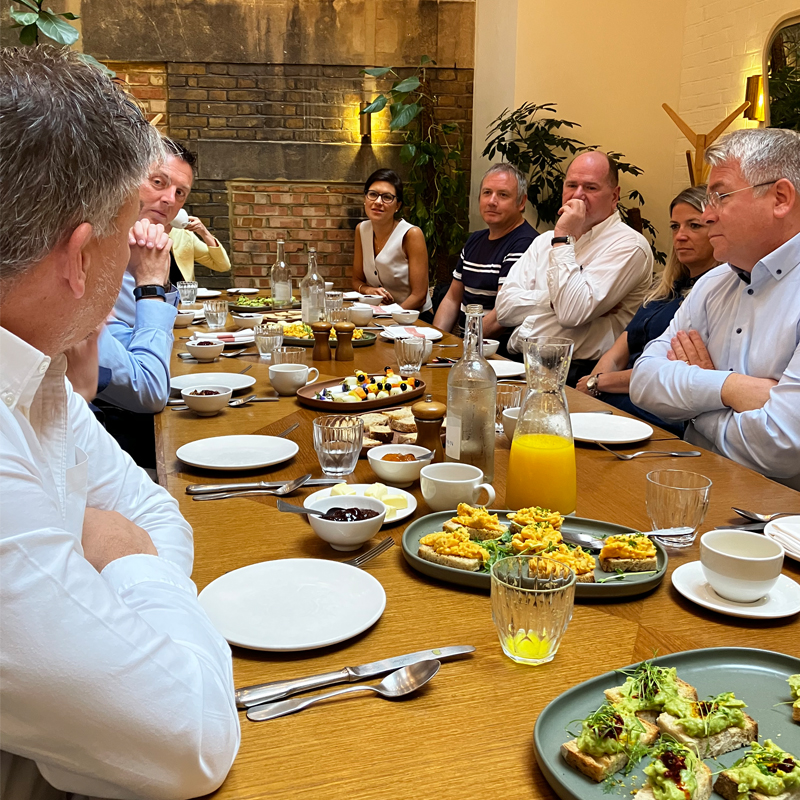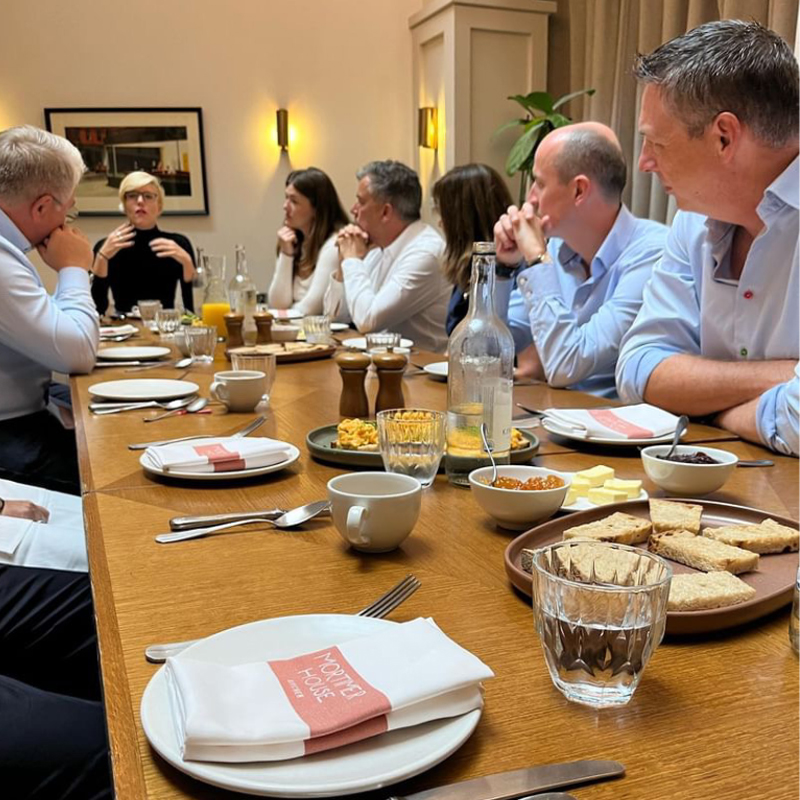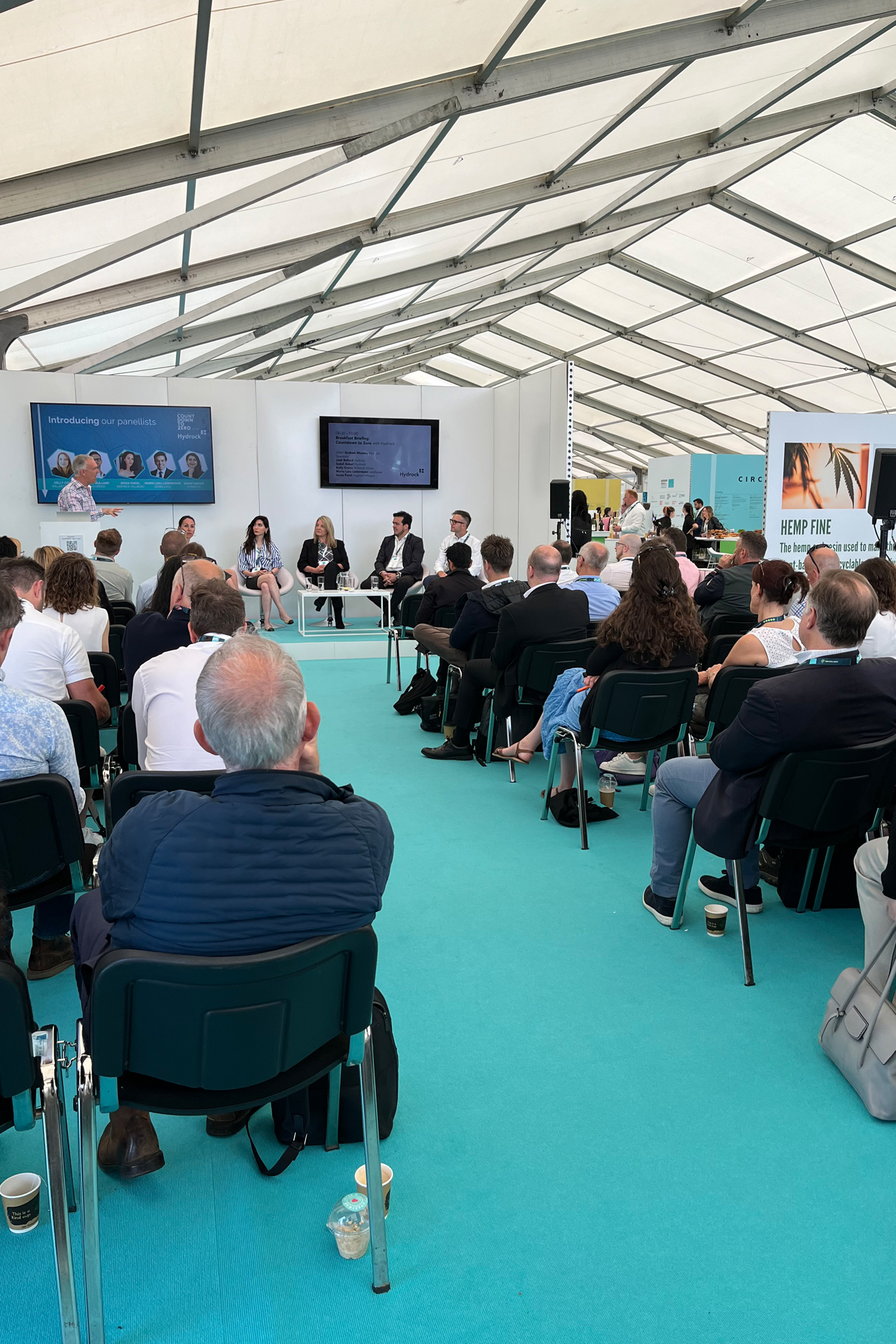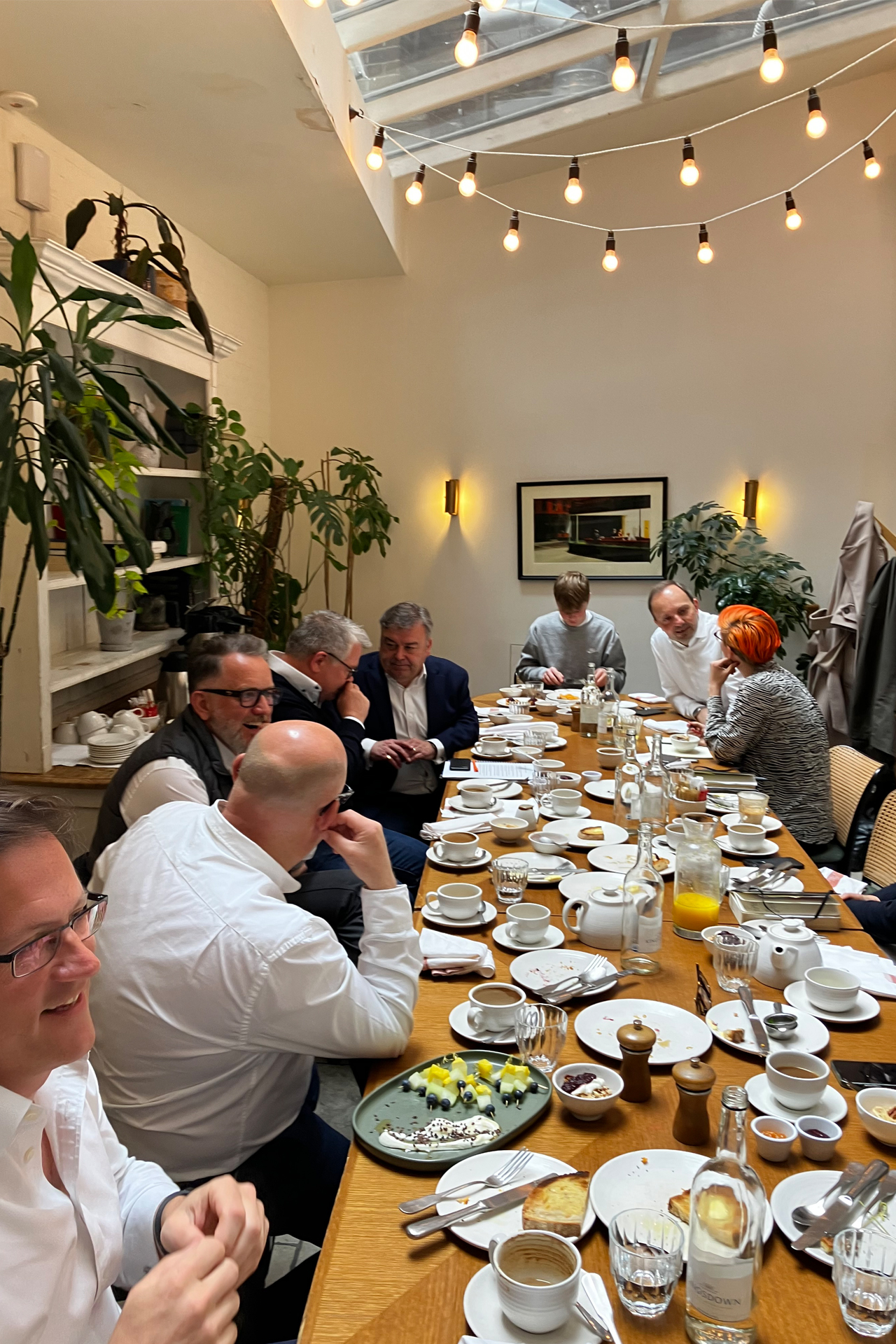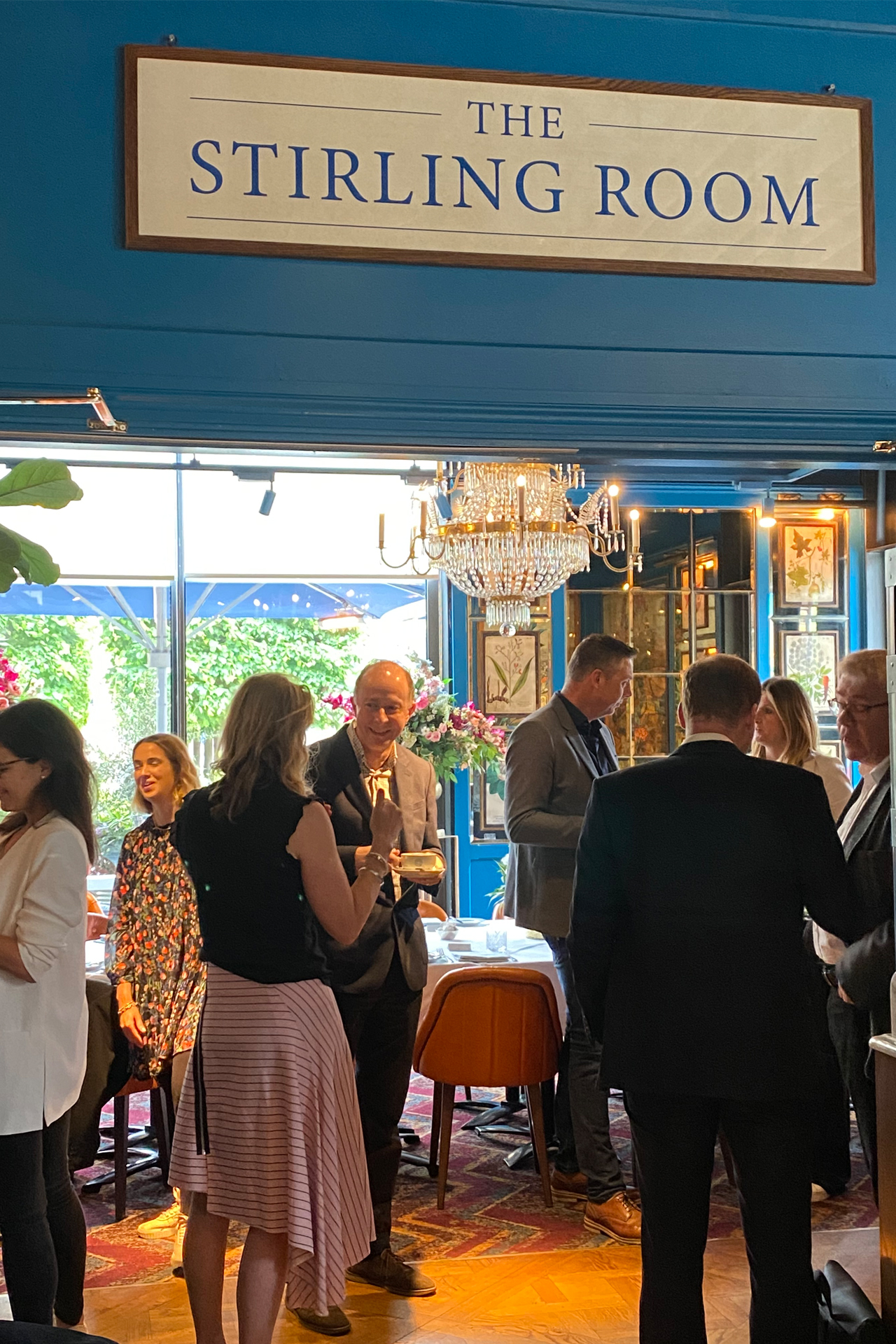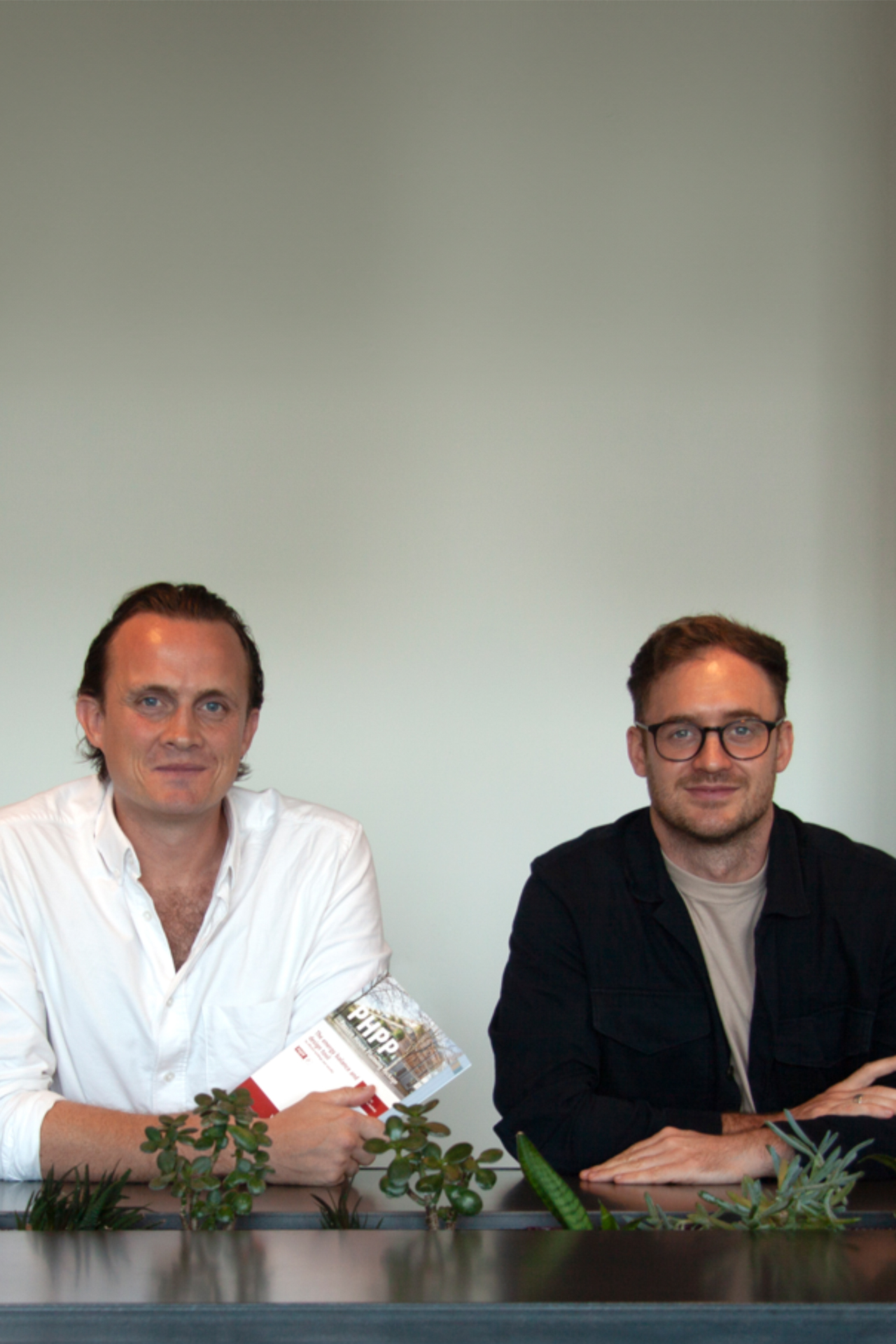At our popular UKREiiF supper, we had a superb menu which included a “Cod Schnitzel”, this got us thinking…
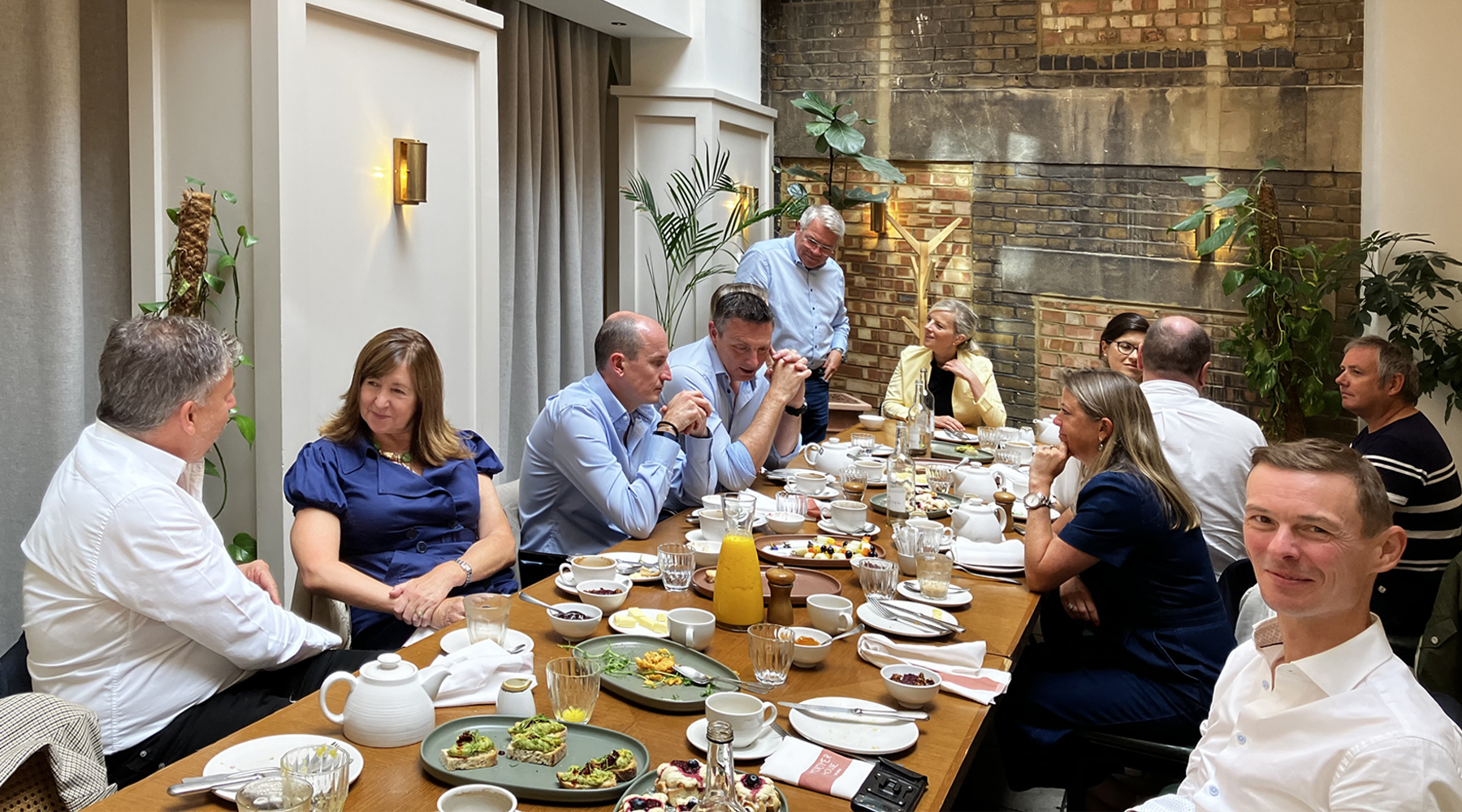
Editors
- James Cons, Managing Director
- Brian Tracey, Operations Director
- Lee Pope, Director
- Lydia Firminger, Director
- Aran Villar, Associate
- Zoe Ward, Graphic Designer & Digital Content Coordinator
At our popular UKREiiF supper, the menu contained amongst other delights a cod schnitzel. This got us thinking. When did a fish finger become a cod schnitzel? Are we in danger of over-embellishing, over-complicating or simply over promising what is at its most basic level some cod and breadcrumbs? Should we not be celebrating the simple ingredients or do we now need to sprinkle magic across our dishes to make them more attractive and more relevant to today’s customers? Does this approach make the simple things less affordable and less accessible to many in society? Are we in danger of excluding those that might see a schnitzel as a premium product or one that is out of their reach solely by the words that are used to describe it?
The parallels between this light-hearted optic and that of urban regeneration in the UK today are not missed by us hence gathering some industry friends for a breakfast to debate what is holding back regeneration in our town centres and whether a simpler approach might bring forward more opportunities.
The debate, as ever expertly moderated by Jessica Middleton-Pugh of React News, got off to a lively start. We focused on the exclusionary nature of the acronyms and words used in our industry and how these might appear as barriers to effective consultation with the communities that might benefit from proposed investment. Making effective communication inclusive, simple and informative was definitely on our guests’ menus.
We soon however started to put more meat onto the bone. Are we in danger of overburdening projects with ever increasing requirements that widen the appraisal gap making the development less palatable? Should we not focus on what might be achieved in the short term to enable medium and longer term initiatives. Much like our supper, should we not wet the appetite with a smaller but equally delicious starter that is more affordable, arrives in a timely fashion and starts to set the expectation of what might be to come?
Counter arguments were served up – “Can’t remember when someone last got excited about a fish finger” – people get excited when a place is elevated with the magic ingredients creating a vision – “more cod schnitzels on my menu please” – “Let’s not undersell our communities, let’s aim for best in class, let’s not settle for second best.”
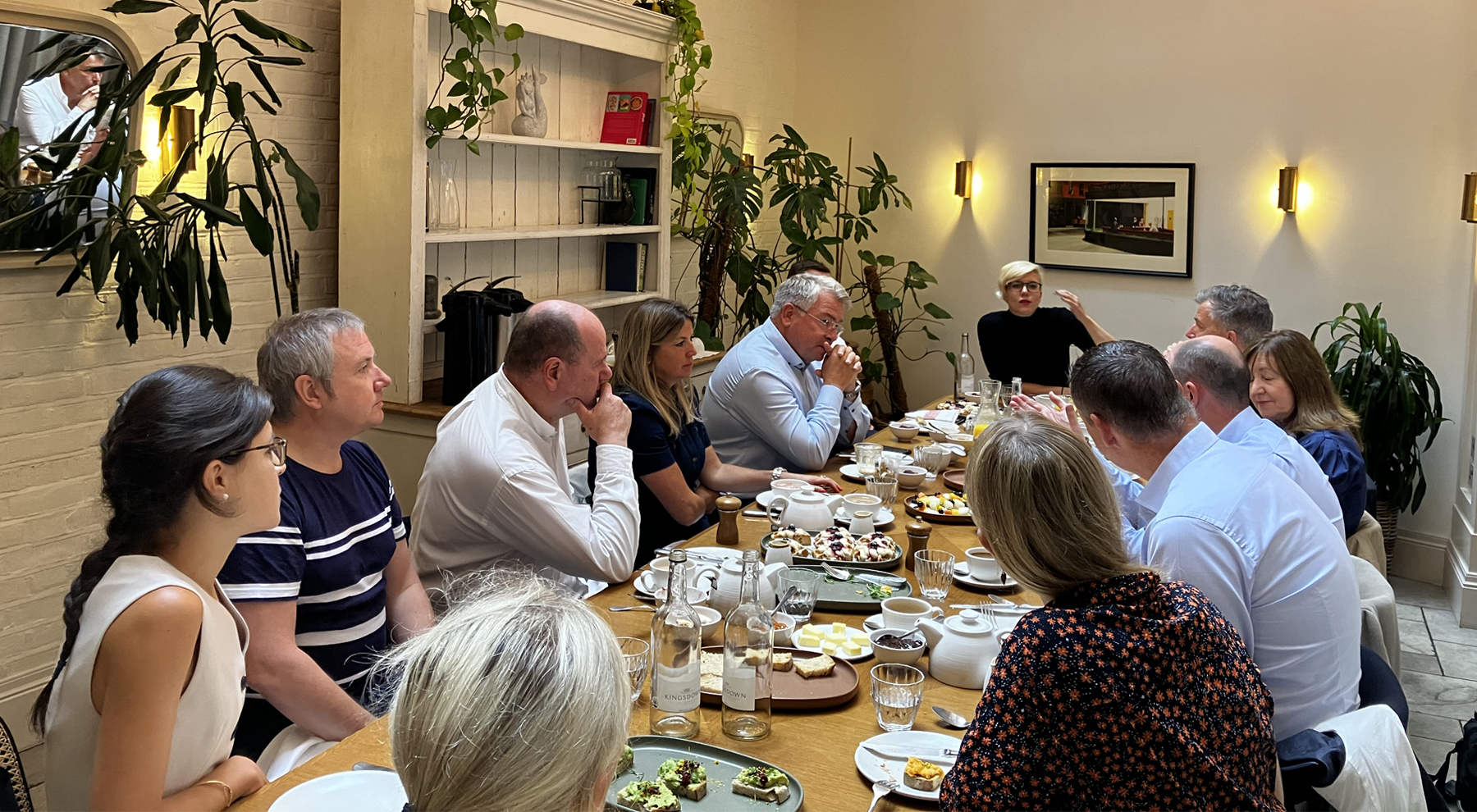
To sum up, our thought-provoking analogy between the transformation of a simple fish finger into a fancier Cod Schnitzel and the challenges of urban regeneration in the UK raises important questions about the balance between innovation and simplicity, communication, and inclusivity.
Some salient points:
1. Over-Embellishment and Over-Promising: It’s true that sometimes, the rebranding or embellishment of simple concepts can lead to higher expectations and potentially exclusionary pricing. The challenge is to strike a balance between making projects more attractive and accessible without losing sight of their core purpose and affordability.
2. Simplicity and Relevance: Celebrating simple ingredients can be just as important as creating complex dishes. Simplicity can often resonate with a broader audience and make things more accessible. However, innovation and creativity also have their place in driving excellence.
3. Inclusivity and Communication: Using complex industry jargon and acronyms can alienate communities that stand to benefit from urban regeneration. Effective communication that is simple, informative, and inclusive is key to ensuring that everyone understands and has a voice in these developments.
4. Balancing Short-Term and Long-Term Goals: Finding a balance between short-term wins and long-term vision is crucial. Sometimes, focusing on achievable short-term projects can build momentum and public support for larger, more ambitious endeavours.
5. Community Engagement: Involving the communities affected by regeneration projects from the outset is essential. This not only helps in understanding their needs but also in co-creating solutions that are more likely to be embraced.
6. Vision and Excellence: While starting with a “smaller but equally delicious starter” has its merits, aiming for excellence and creating a compelling vision for a place can be a powerful motivator for investment and revitalization.
Not wishing to further complicate the discussion, I am quite partial to a fish finger sandwich – where does that leave me? – James Cons
